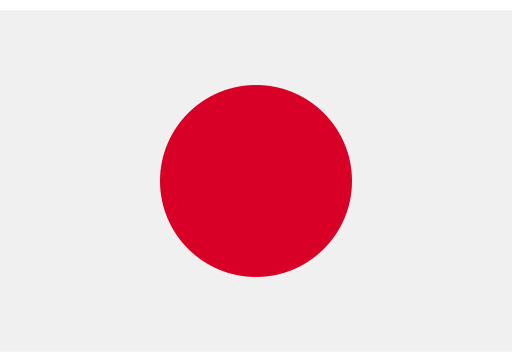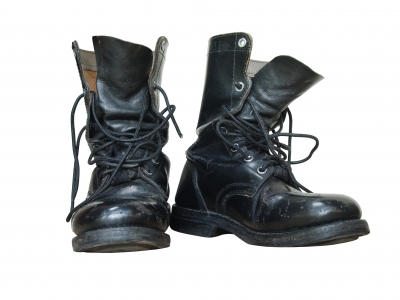Competition is tough for translators these days. The Internet has made it possible for anyone, anywhere, to set up shop as a translator. And machine translation – while still often producing gobbledygook and a good laugh – is becoming a viable option in certain fields. Sadly, some clients go with low-cost, low-quality options due to price pressures and inability to judge good writing in another language (and, by the way, what initially seems like a low-cost translation option can end up costing the client a packet in damage control – but that’s a subject for another blog post). Happily, other clients know quality and understand what it costs.
So how can you be the translator these clients turn to?
If you have between two and twenty years’ experience as a Japanese-to-English translator, can be in Japan April 10 to 12, and are willing to invest in yourself to be a cut above the rest, read on.
Join the trail-blazing Translation Reboot Camp – an opportunity to learn from some of the very best in the Japanese-to-English translation business in a concentrated series of workshops using field-specific material to provide broadly applicable insights. The small numbers, fantastic student-to-instructor ratio, and weekend residential format ensure abundant problem solving and discussion.
Each of the six instructors will lead a workshop in a specialty area and advise on productivity enhancement, business practices, and more in an informal, personalized setting.
Tony Atkinson majored in physics at the University of Western Australia and used his Bachelor of Science Degree and Diploma of Education in a teaching career that spanned ten years before switching to Japanese-English translation in 1988. A freelancer since 1992, his work is now focused mainly on the areas of medicine and drug development, but he still finds it difficult to turn down requests for physics-related translations. He teaches J-E medical translation in the Master’s Course in Japanese and English Translation at the University of Queensland, and delivers seminars and workshops on pharma translation and scientific writing to clients in Japan. He is the current chair of the JAT special interest group JATPHARMA.
Sarah Bull graduated from The University of Queensland’s Masters of Japanese Interpreting and Translation (MAJIT) program as a NAATI accredited translator and interpreter in 2006. Since graduating, she has dedicated herself to developing a specialization in legal translation and to the teaching of translation. Sarah worked as an in-house legal translator at one of the top law firms in Tokyo for four years before making the shift to freelance translation in 2011. Since making that shift she has taught translation at Sophia University and Temple University in Japan and nowadays works primarily as a senior legal translator and partner at Translation Business Systems Japan (TBSJ). She has been a committee member of JAT Special Interest Group JATLAW since its early days and has facilitated workshops and presented on legal translation and ethics and professionalism for JATLAW, IJET, and the JTF Honyakusai. Her primary areas of interest are legal translation and translator training and professional development.
Helen Iwata studied German and Japanese at Aston University in the UK and holds a Master of Arts in Advanced Japanese Studies from Sheffield University. She studied conference interpreting at Interschool, Tokyo. With over two decades as an in-house translator and manager under her fourth-dan karate black belt, Helen established Sasuga! Communications in May 2013. She now translates business materials and books, and trains business professionals on presentation skills, leadership, and other communication topics. Helen served as JAT president from 2009 to 2013 and currently chairs the Tokyo Activities Committee.
Ginny Tapley Takemori has a BA Hons. Japanese from SOAS (London University) and an MA in Advanced Japanese Studies from Sheffield University. She comes from a publishing background, having worked as a foreign rights literary agent, a reader for scouts and agents, and commissioning editor at Kodansha International. A freelance literary translator since 2006, she has translated a wide range of fiction titles, from the early modern authors Okamoto Kidô and Izumi Kyôka to contemporary authors Ryu Murakami, Miyuki Miyabe, Kyôtaro Nishimura, and Hideo Furukawa, among others. She has also translated a number of non-fiction books on the visual and performing arts, history, and culture. Her first foray into children’s literature, Akiyuki Nosaka’s The Whale That Fell in Love With a Submarine, will be published in the UK by Pushkin Press on February 12, 2015 (August in US and Japan).
Fred Uleman parlayed a U of Michigan English degree, a grounding in Japanese, an interest in what he calls “money and power as a spectator sport,” and a few lucky breaks into a career translating business and political material for government ministries, major corporations, and others who wanted their messages delivered in convincing English. He started in 1967 translating a paper for the first Shimoda Conference, apprenticed at Simul International, set up his own corporate shell in 1974, and is delighted to still be translating. Along the way, he was a JAT co-founder and helped with a number of other translation-related initiatives.
Richard Walker is the founder and operator of Praxis, Inc. in Yokohama, Japan. He has more than 25 years of experience as a professional, freelance translator, with specialties in finance and law, and is a past director of the Japan Association of Translators (JAT). He has taught translation and interpreting, presented at IJET, Project, JAT and Honyakusai events, was the keynote speaker for the 2011 Annual General Meeting of the Japan Translation Federation, and was a Distinguished Speaker at the 2013 Conference of the American Translators Association. He is particularly interested in translator efficiency and productivity.
Dates
8 p.m. on Friday, April 10, to noon Sunday, April 12, 2015
Venue
Shonan Village Center in Hayama, Kanagawa
Cost
JPY100,000/person (includes single-room accommodation for two nights, five meals, and workshop materials; excludes transportation)
Applications
Please request an application form here and return it by March 15 at latest. Because we expect more applicants than we can accept, individuals will be notified of the results by March 23. If accepted, please make the payment by March 31.
Questions
Please send any questions here or use the comments field below.
Image courtesy of nuttakit FreeDigitalPhotos.net



